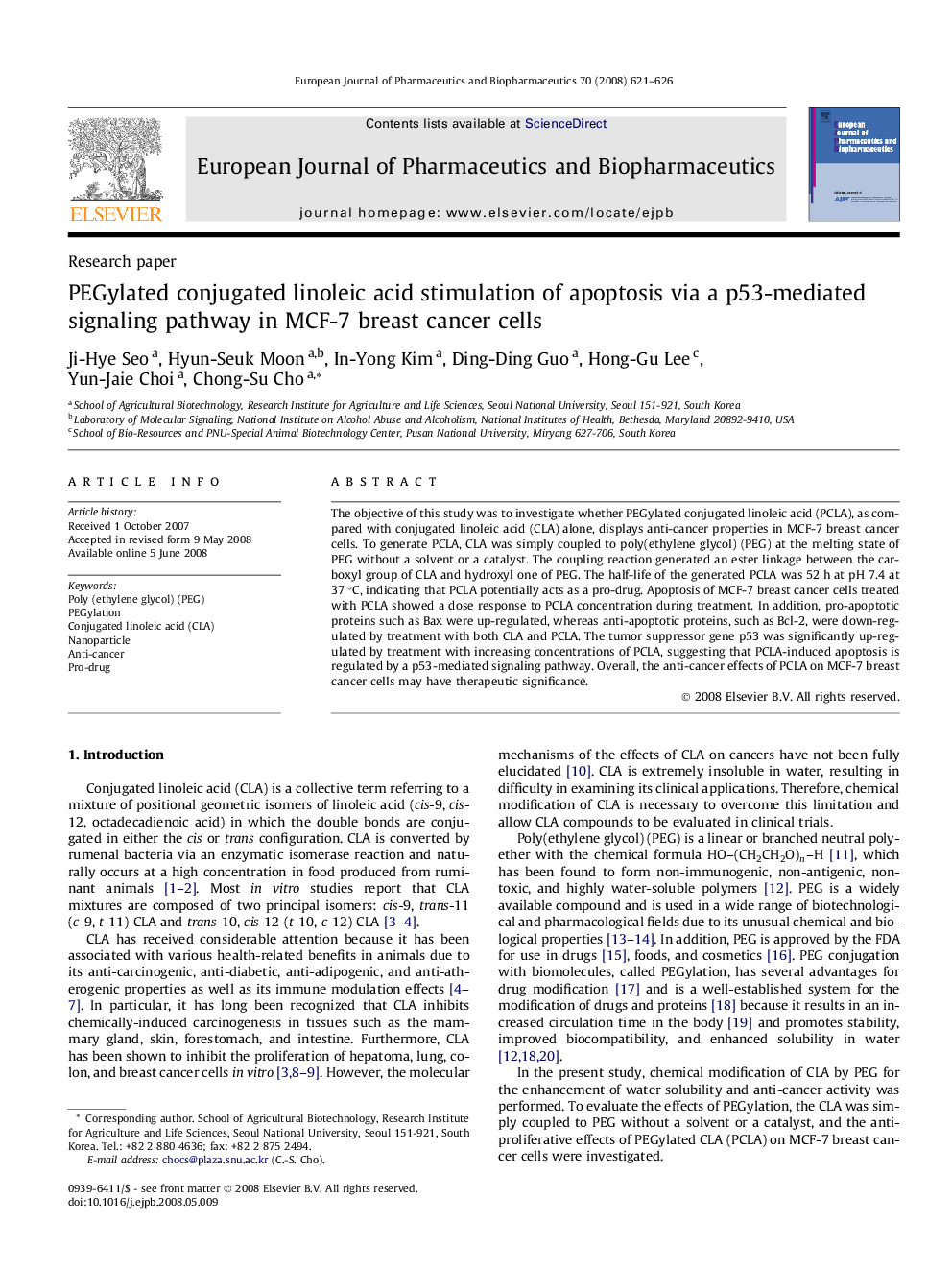| Article ID | Journal | Published Year | Pages | File Type |
|---|---|---|---|---|
| 2084574 | European Journal of Pharmaceutics and Biopharmaceutics | 2008 | 6 Pages |
The objective of this study was to investigate whether PEGylated conjugated linoleic acid (PCLA), as compared with conjugated linoleic acid (CLA) alone, displays anti-cancer properties in MCF-7 breast cancer cells. To generate PCLA, CLA was simply coupled to poly(ethylene glycol) (PEG) at the melting state of PEG without a solvent or a catalyst. The coupling reaction generated an ester linkage between the carboxyl group of CLA and hydroxyl one of PEG. The half-life of the generated PCLA was 52 h at pH 7.4 at 37 °C, indicating that PCLA potentially acts as a pro-drug. Apoptosis of MCF-7 breast cancer cells treated with PCLA showed a dose response to PCLA concentration during treatment. In addition, pro-apoptotic proteins such as Bax were up-regulated, whereas anti-apoptotic proteins, such as Bcl-2, were down-regulated by treatment with both CLA and PCLA. The tumor suppressor gene p53 was significantly up-regulated by treatment with increasing concentrations of PCLA, suggesting that PCLA-induced apoptosis is regulated by a p53-mediated signaling pathway. Overall, the anti-cancer effects of PCLA on MCF-7 breast cancer cells may have therapeutic significance.
